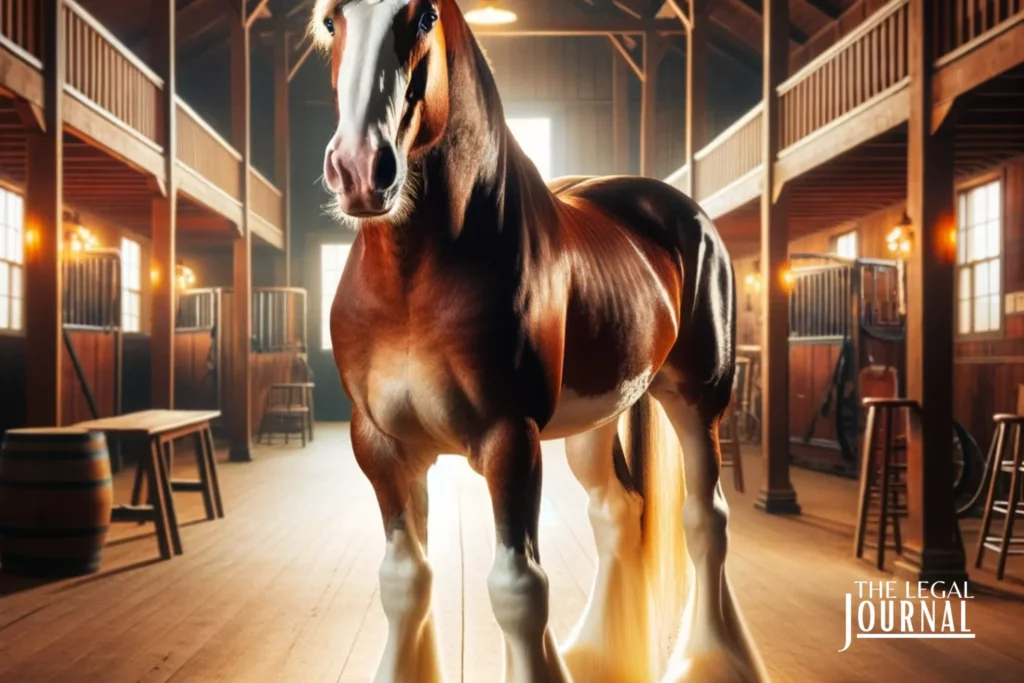The Budweiser Clydesdale Controversy: Navigating Animal Rights and Brand Image
Budweiser’s iconic Clydesdale horses have been central to its brand image, generating a sense of nostalgia and tradition. Recently, however, the usage of these horses, specifically the practice of tail docking, has come under scrutiny, resulting in significant changes by Anheuser-Busch, Budweiser’s parent company.
Key Points:
- Animal rights activists, led by PETA, lobbied Budweiser to cease the use of horses with docked tails.
- Docking, a controversial practice, involves amputation of horses’ tails for either cosmetic reasons or to prevent tail interference.
- The American Veterinary Medical Association opposes tail amputations unless medically required.
- Anheuser-Busch has confirmed discontinuation of this practice earlier this year, emphasizing the welfare of the Clydesdales.
- The controversy arose during another Budweiser brand crisis involving a partnership with transgender influencer, Dylan Mulvaney.
As consumers, it’s essential to understand the broader implications of the choices made by the brands we support. Recent events surrounding Budweiser’s Clydesdale horses and the docking of their tails provide a case study into the power of public pressure and the role of advocacy in influencing corporate decisions.
Budweiser has always been synonymous with its image of Clydesdale horses, often depicted pulling beer wagons in heartwarming commercials. The recent backlash began when PETA (People for the Ethical Treatment of Animals) highlighted a horse with an apparently docked tail in a Budweiser advert. They argued that the horse, and possibly others owned by the brewery, had their tails cruelly amputated for cosmetic purposes.
Docking is a process where a horse’s tail is amputated. The reasons cited range from aesthetics to the belief that a docked tail won’t interfere with a harness, potentially causing drivers to lose control of the animal. However, medical opinions like that from the American Veterinary Medical Association (AVMA) highlight the potential pain and complications, such as infection, resulting from this procedure. The AVMA and the American Association of Equine Practitioners both oppose tail amputations unless they are medically necessary.
Anheuser-Busch responded to the criticism, ensuring that the practice had been discontinued earlier this year. They reaffirmed their commitment to the well-being of their Clydesdales, collaborating with an equine medical expert and earning a certification from the American Humane organization.
The controversy’s timing was significant. Budweiser’s sister brand, Bud Light, faced its own challenges over a partnership with transgender influencer, Dylan Mulvaney. The docking issue drew more attention against this backdrop, as brands increasingly face scrutiny over their decisions, values, and societal impact.
For the average consumer, these events underscore the importance of staying informed and understanding the broader implications of the products we purchase and the brands we support. Companies, on the other hand, must navigate these complexities, ensuring they align with ever-changing societal values while maintaining their brand’s integrity.
Budweiser’s recent controversies serve as a reminder that in today’s interconnected world, companies are under constant watch. Advocacy groups like PETA play a crucial role in holding them accountable, ensuring that ethical and humane practices are at the forefront of business operations.



